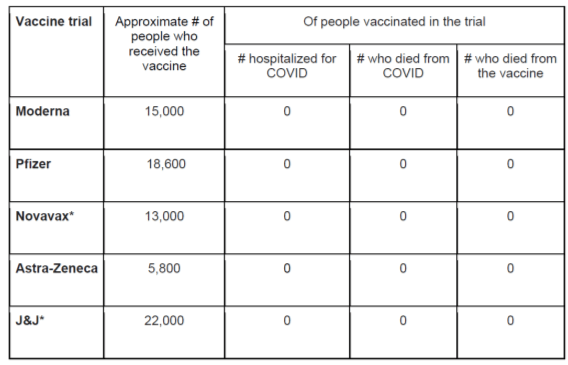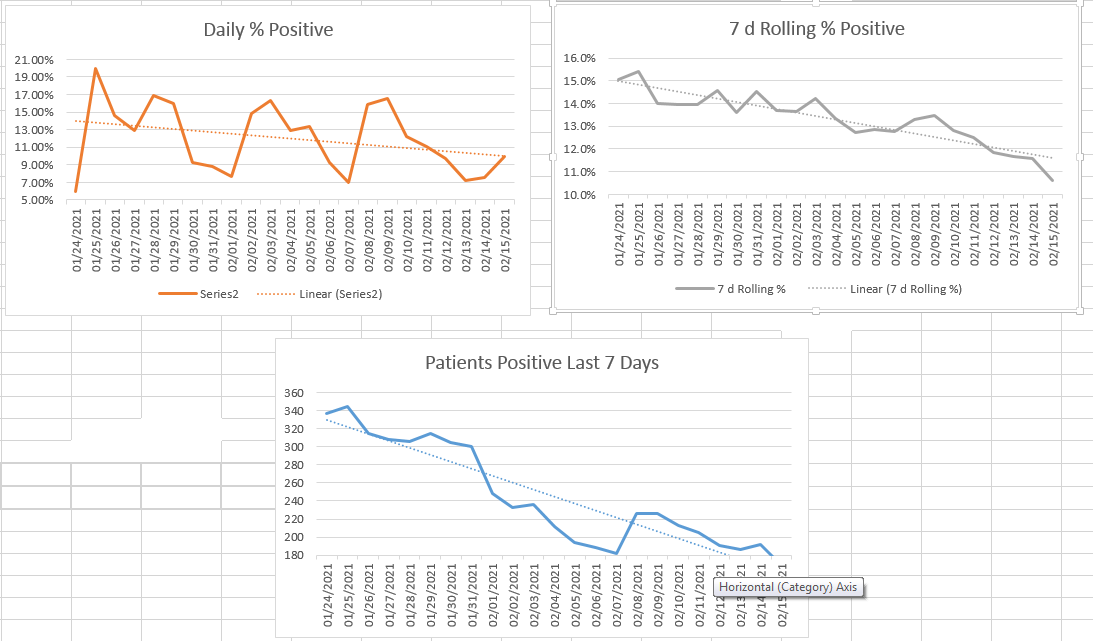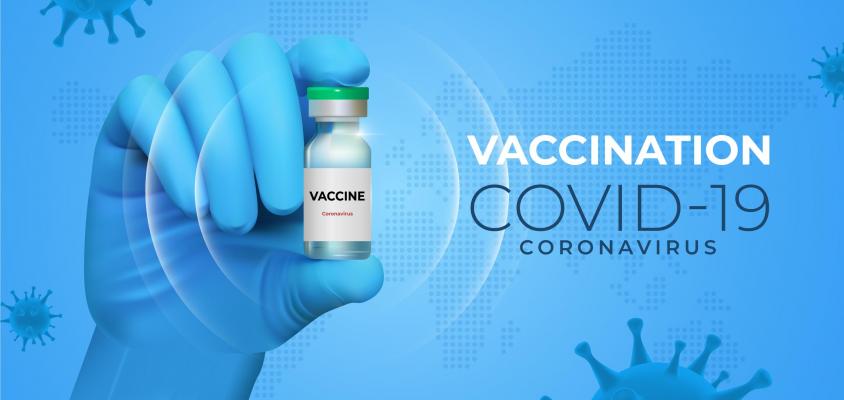Uncertainty – one word I’d use to describe this past year. Uncertainty surrounding COVID-19, the state of the economy, and life as we knew it prior to March 2020; as providers, we look at science and research to help determine certainty.
For the last several months, we’ve been looking forward with a hopeful gaze as some of the smartest brains in the world worked to develop vaccines to help stem the pandemic. And to our relief, they’ve been approved for Emergency Use Authorization (EUA). We signed up to get vaccinated ourselves and have encouraged family, friends, and colleagues to get the vaccine as soon as they are able.
What we weren’t expecting is how much concern about getting a COVID-19 vaccine, also known as vaccine hesitancy, we’d be faced with. The country’s history with past vaccines can’t be overlooked – and we understand why people may be hesitant about getting the COVID-19 vaccine, but it is important for us to overcome vaccine hesitancy, together. The state of immunity of the world is determined by all of us, and while we wait for the widespread availability of vaccine, whether eagerly or reluctantly, I’d like to take this opportunity to talk about some of the recent good news vaccine studies have been showing.
Please remember, your providers at Crystal Run Healthcare are here for you. Ask them questions at your next appointment if you have hesitations about getting vaccinated. We can help (and would be happy to) answer any questions you may have.
Here’s what we know…
The vaccines work really well
All of the approved vaccines currently being distributed provide excellent protection against serious illness caused by COVID-19. They provide amazing protection against dying from COVID-19. In fact, every vaccine totally prevented hospitalization or death from COVID-19 in studies.
The below chart by Ahish K. Jha, MD, MPH shows data gathered during clinical trials:

For comparison, if you took a sample of 75,000 unvaccinated people you could expect about 150 of them to die of COVID-19 and several hundred more to be hospitalized. While one vaccine might seem to have prevented more people from getting symptoms of COVID-19 than others, all vaccines prevented serious disease and death – which was the goal for development (a huge win for science)!
You may be inclined, based on your research or experiences by family and friends, to prefer a specific vaccine to others. Since supplies fluctuate, and we currently don’t have enough to vaccinate all that want and need it, you should get any vaccine you are offered. They all work. I recommend you NOT wait for any one in particular. After all, the goal is to get vaccinated to protect yourself and those around you from serious illness, hospitalization and even death.
It’s also important to know that the percentage protection numbers of individual vaccines aren’t directly comparable since the vaccines weren’t studied against each other. Getting a vaccine is the most important thing - any vaccine. My advice is to get the one you can get!
Now is also a great time to start the conversation with your friends or family members who are vaccine hesitant – find out what their feelings are and direct them to credible sources (like the providers at Crystal Run Healthcare) to get answers and help calm fears.
Serious side effects are rare
I would be lying if I said there are no side effects with vaccination. That goes for COVID-19 vaccines and others – your body is having an immune response to the vaccine. Most side effects are just a nuisance - sore arm, body aches, low-grade fever for a day or so, etc. While it may feel unpleasant, mild side effects are a good thing.
I cannot stress this enough, there have been very, very few severe reactions. Allergic reactions have been caught during the post-vaccination monitoring period and have been treated. The news media makes them seem super common. They are not. It’s important to remember that the goal of news companies is to get people to read their stories, and what are people more likely to read: “Patient has severe reaction from COVID-19 vaccine” or “Millions of people vaccinated with no severe reactions reported”? Just something to think about!
I’m actually not surprised there are some severe reactions. When you do something on a mass scale, to a couple of million people, rare things can occur. Death or serious reaction from COVID-19 vaccine is rare- super rare. We can all commiserate and compare our vaccine stories- after we all get vaccinated.
COVID numbers are improving
Why are we so excited about COVID-19 vaccines (and pushing to get them to Crystal Run Healthcare to distribute)? Because the vaccines already seem to be having an effect on the rate of COVID-19 disease spread in the community!
In the first week of February, more people in the U.S. got vaccinated than tested positive for COVID-19. Hopefully, we will soon start seeing some seasonal effect of decreased virus transmission as well. Viruses in general are less likely to be transmitted in the spring and summer.
The numbers we’re seeing locally agree with the improved broader numbers.
Here is a summary of Crystal Run Healthcare’s numbers as of 2/5:

As I write this, I remain hopeful, as do the other providers at Crystal Run Healthcare. We believe in the COVID-19 vaccines that have been approved and encourage you to get the shot when it’s available to you. Please continue to wear masks, social distance, avoid crowds, wash your hands, and get vaccinated when you are able. If you’re still uncertain, reach out to your Crystal Run provider – we’d be happy to talk it over with you.
We need to come together to beat this virus – we can do this!
Gregory A. Spencer, MD, FACP
Chief Medical Officer & Chief Medical Information Officer
Dr. Gregory A. Spencer is the Chief Medical Officer and Chief Medical Information Officer at Crystal Run Healthcare. Dr. Spencer graduated from the Medical College of Wisconsin (Marquette University) Medical School and completed his residency in Internal Medicine while in the US Air Force at Wilford Hall USAF Medical Center in San Antonio, TX. Dr. Spencer joined Crystal Run as an internist in 1996 and was appointed as Chief Medical Officer and Chief Medical Information Officer in 2008. Dr. Spencer is board certified in Internal Medicine and is a Fellow of the American College of Physicians.
